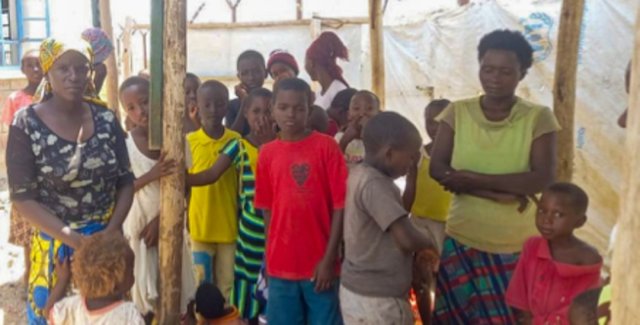FCA Allocates €50,000 for Emergency Response Following Intensified Ethnic Conflicts in Kalobeyei

During World Refugee Day Celebrations on 20th June 2024 at the Kalobeyei Sports Complex, an Anyuak (Ethiopian) boy alleged that a Nuer (South Sudan) boy had stolen his head scarf, resulting in a scuffle that left the Anyuak boy stabbed by the Nuer. The Nuer boy was beaten by the Anyuak boys, and both were taken to the Natukobenyo Health Centre for treatment. After the World Refugee Day celebrations, the Nuer tribe sought retaliation. Stone throwing occurred outside the Sports Complex between the two groups.
The conflict continued when a group of the Anyuak youth returning to the Kalobeyei Reception center were attacked by the Nuer youth who were initially involved in the conflict. The Nuer boys mobilized other youth in their communities in Kalobeyei Village 2 and attacked the Anyuak. From 21 to 22 June 2024, tensions between the two tribes escalated in Kakuma refugee camp and Kalobeyei settlement that has since resulted in loss of lives and massive displacement of households and loss of livelihoods for refugees in Kalobeyei.
An estimated 48,500 refugees reside in the hotspot areas including 47,000 persons in Kakuma 2, Zone 2, Kakuma 1, Zone 1, and Kakuma 4 and 1,500 persons in Kalobeyei, Village 2. Out of 48,500 refugees, 60 per cent (29,000 persons) belong to Nuer community whereas 2 per cent (>1,000 persons) belong to Anyuak. From an assessment conducted by UNHCR, Department of Refugee Services (DRS) and Peace Wind Japan (PWJ) on 6th July 2024, 3,565 refugees including school going children have been affected and rendered homeless in Kalobeyei settlement.
In response to the crisis, Finn Church Aid (FCA) has allocated €50,000 to an emergency response program. This funding will provide immediate relief and support long-term recovery for the affected refugee communities. The allocation will ensure that school going children in the settlement have access to safe and supportive learning environments.
FCA will supply necessary learning materials and ensure that schools are secure, creating a conducive environment for education and development. The funds will also be used for multi-purpose cash transfers to teachers from FCA-supported schools and affected households. This financial support will assist families in recovering from lost livelihoods and property, allowing them to purchase essential items and services.
Additionally, FCA will distribute non-food items (NFIs), including hygiene kits and household goods, to improve the living conditions and overall well-being of the refugees. To address ethnic tensions and promote reconciliation within the refugee community, FCA will implement peace-building initiatives. These efforts will complement the work of other several actors and stakeholders such as UNHCR, Government of Kenya through Department of Refugee Services (DRS) and the Deputy County Commissioner (DCC) Turkana west.
Text: Richard Tsalwa , Alexon Mwasi and Daisy Obare/FCA